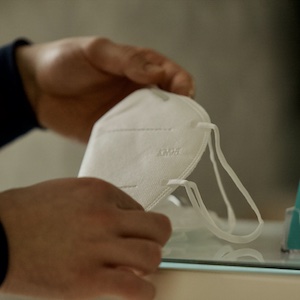Correlation between extended surgical mask usage and adverse health effects during the COVID-19 pandemic among healthcare personnel in Jazan, Saudi Arabia

All claims expressed in this article are solely those of the authors and do not necessarily represent those of their affiliated organizations, or those of the publisher, the editors and the reviewers. Any product that may be evaluated in this article or claim that may be made by its manufacturer is not guaranteed or endorsed by the publisher.
Authors
The global prevalence of COVID-19 has necessitated the use of personal protective equipment, particularly face masks, amongst healthcare workers (HCWs). However, extended face mask usage has led to adverse health effects. This cross-sectional study investigates the relationship between prolonged surgical mask-wearing and the development of adverse effects among 500 HCWs in Jazan, Saudi Arabia. The study utilized an anonymous questionnaire distributed across multiple departments in Jazan and Sabya Hospitals. The results indicated that most participants believed that wearing face masks for extended periods led to adverse skin and respiratory effects. The primary respiratory complaints were difficulty breathing and nasal itching, while skin-related issues included sweating, itching, and acne. Therefore, this study concludes that extended surgical mask usage during the COVID-19 pandemic could potentially lead to adverse health implications among HCWs in Jazan. Further research into this correlation is needed.
How to Cite

This work is licensed under a Creative Commons Attribution-NonCommercial 4.0 International License.
PAGEPress has chosen to apply the Creative Commons Attribution NonCommercial 4.0 International License (CC BY-NC 4.0) to all manuscripts to be published.








